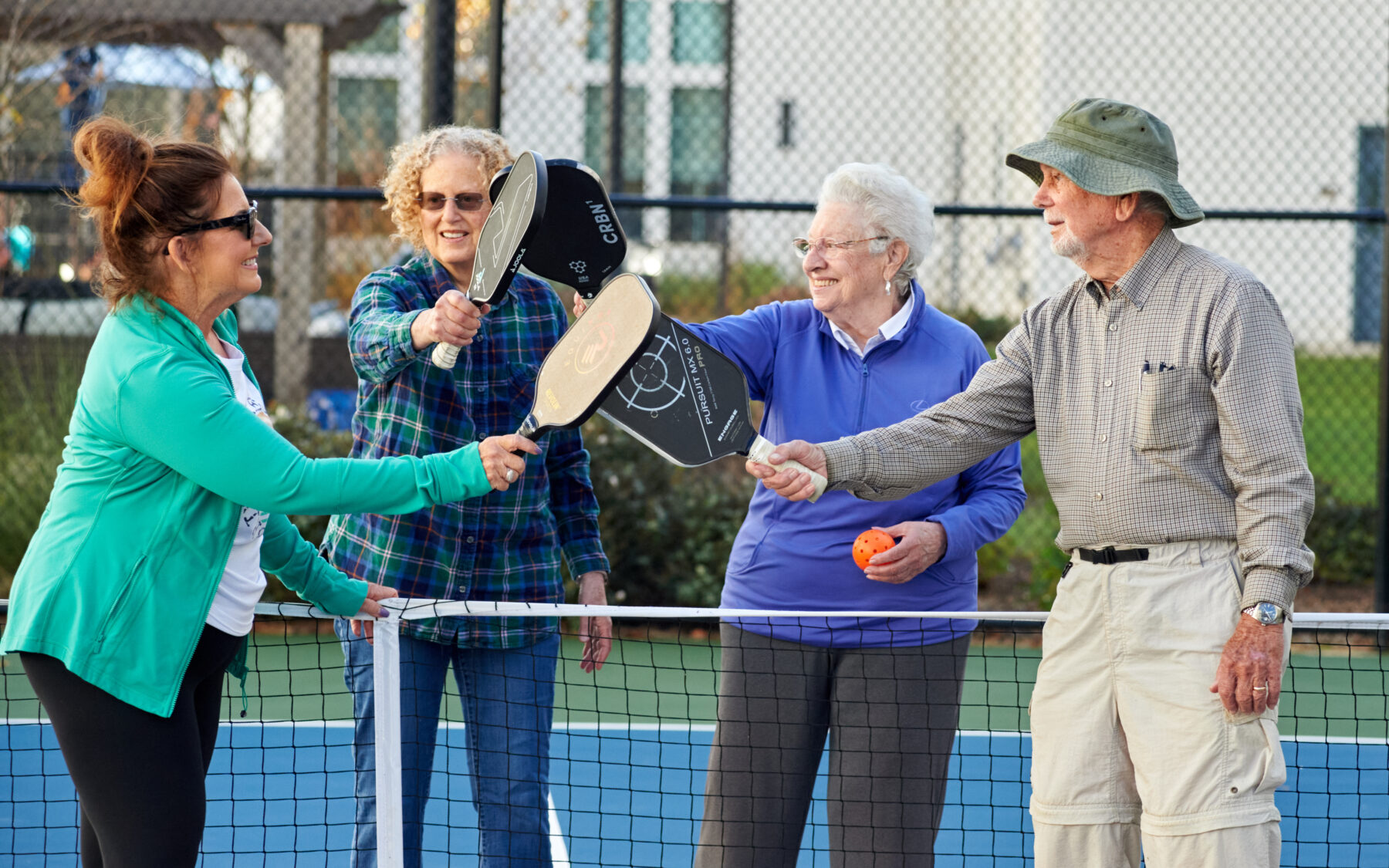Social support plays a significant role in overall health, especially as we age. Research has shown that spending time with friends, neighbors and family members can have many positive effects, enhancing seniors’ quality of life, physical health and mental health.
For some seniors – particularly those with memory loss – there may be fewer opportunities to socialize as time goes on. Depending on whether getting out of the house has become more difficult, their circle of friends has become smaller or their memory impairment interferes with being socially active, older adults can begin to socialize less.
How to combat isolation.
By contrast, a high level of social support – as found at Highpoint at Fort Mill – has been shown to reduce stress, ward off anxiety and depression, and reduce the risk of some physical health concerns. Some promising research found that cognitive abilities declined 70 percent more slowly in individuals who had frequent social connections in comparison with those who had little social contact.
The National Institute on Aging has identified a strong correlation between social opportunities and greater health and wellbeing among seniors. Socialization supports cognitive health, and while the exact function is not yet completely understood, individuals with a strong social network generally retain more memories than peers who are more isolated.
Seniors who are chronically lonely often have elevated systolic blood pressure and are also at greater risk for anxiety and depression. Through purposeful, daily social programming in memory care at Highpoint, your loved one can realize the many benefits of socialization – and stay as healthy and connected as possible in a supportive, family-like setting.

